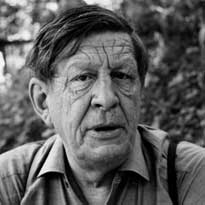Matthew Kaminski of The Daily Beast says that Adam Zagajewski was “The Poet of September 11,” thanks to his poem “Try to Praise the Mutilated World.”
Well, not quite so. That honor belongs to W.H. Auden, with his “September 1, 1939.” Let’s say that Adam was the greatest living embodiment of that atrocity:
“Try to Praise the Mutilated World” recalls a trip Zagajewski took with his father through Ukrainian villages in Poland forcibly abandoned in the population transfers of the post-Yalta years. “This was one of the strongest impressions I ever had,” he says. “There were these empty villages with some apple trees going wild. And I saw the villages became prey to nettles; nettles were everywhere. There were these broken houses. It became in my memory this mutilated world, these villages, and at the same time they were beautiful. It was in the summer, beautiful weather. It’s something that I reacted to, this contest between beauty and disaster.”
I have to agree with Adam – and I guess it’s sacriligeous to say it this week – that 9/11 didn’t change my fundamental worldview, which always included a mysterious allowance for evil in human goings-on. He thinks, however, it has changed our collective response to trauma. In “the past in general and not only in Europe,” he says, “the rule was to forget, to move on. There’s a relatively new idea that you have to work on it—that you have to keep everything in our memory. Which I like. It’s changing us. I don’t think people in the mid–19th century were going back to the Napoleonic wars and thinking, ‘We have to work on it’?”
Goodness, I wish that were the case. The way I see it, memory has all but evaporated. I was speaking to jazz artist Jim Cullum recently, and he was telling me about classes he taught, filled with bright students – but when he wrote “December 7, 1941” on the board, they had no associations with that date.
Kaminski says Adam “often purrs his words and speaks slowly” – well, not quite. In America, we call it a kind of Polish drawl. I recall someone hesitating to invite Adam as a speaker on a panel because, well … you really never knew how long a sentence from Adam would take.
I like this paragraph from Kaminski’s piece the best:
Polish poets have long thought of themselves as national bards, called to engage with the harsh world around them. “Polish poetry is one of the marvels of 20th-century literature,” wrote former U.S. poet laureate Charles Simic, who cited its “one rare virtue: it is very readable in a time when modernist experiments made a lot of poetry written elsewhere difficult.” Zagajewski says some critics see “something barbarian” in Polish poetry’s emphasis on meaning over syntax or style. “I’ve heard some French poets say Polish poetry is just journalism, because you can understand it.”
From the March event at NYC’s 92nd Street Y, which I wrote about here:
Tags: Adam Zagajewski, Jim Cullum, Matthew Kaminski, W.H. Auden




September 8th, 2011 at 4:19 am
I have to agree with Adam – and I guess it’s sacriligeous to say it this week – that 9/11 didn’t change my fundamental worldview, which always included a mysterious allowance for evil in human goings-on.